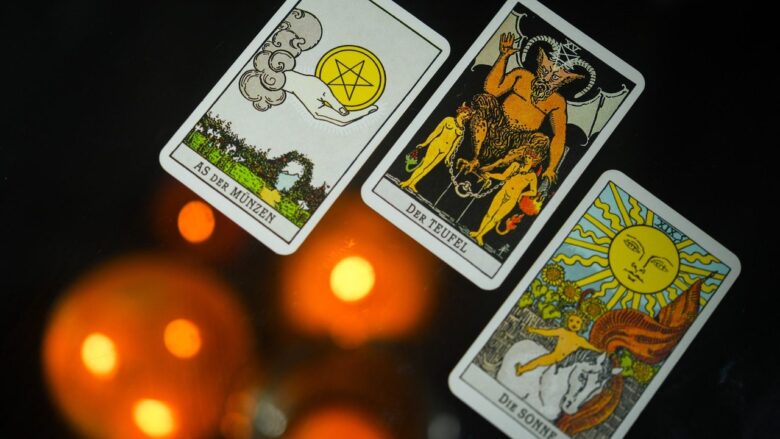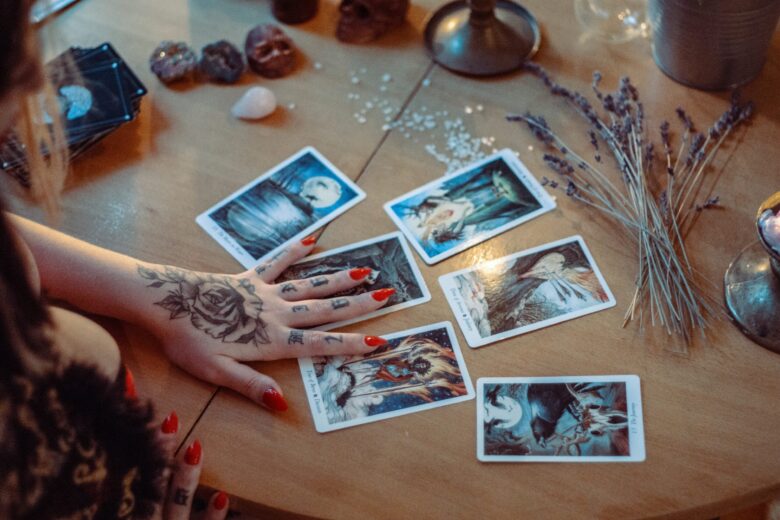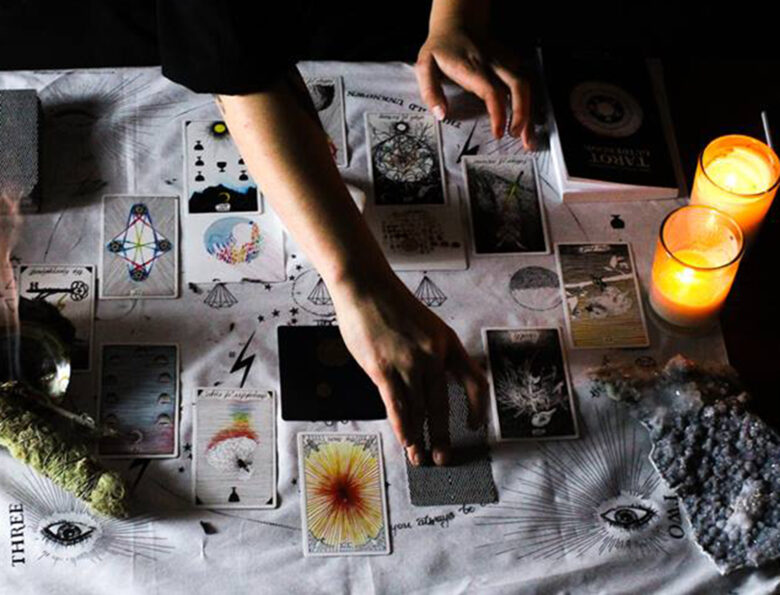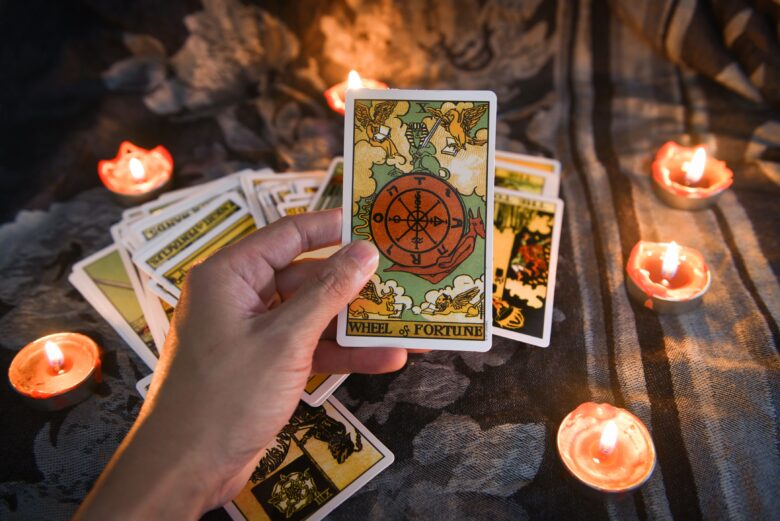Tarot readings, also known as taromancy, carry a long history of being used to gain insight into the past, present, and future. A tarot reading is an interpretive practice involving a deck of 78 cards divided into two categories – the Major arcana and minor arcana. Although it’s unclear when exactly tarot readings were first used, many believe its origins can be traced back to Ancient Egypt. Throughout its long lifespan, the tarot has remained a popular method for finding guidance in issues concerning relationships, careers, and spiritual growth.
Contents
Ancient Origins of Tarot Readings

Believed by some to have originated all the way back in the 14th century, tarot readings are one of the oldest, yet most mysterious practices still used today. There is much debate concerning the history and meaning of tarot readings; some believe that it has pagan roots, while up until the modern day it has been strongly associated with the occult and mysticism.
It is widely accepted that cards were first seen in Europe and there are many theories as to how these cards came into existence. Some say that they originated from Egyptian symbolism as far back as 3000 BC, while others believe their origins lie in Christian dogma and religious beliefs from around 1400 AD when cartomancy first emerged. It is widely speculated that Gypsies may have brought this form of divination to Europe during their travels through the Middle East and North Africa centuries ago.
Others hypothesize that tarot readings are derived from astrology, alchemy, or Chinese fortune-telling techniques; however, most agree on a common belief: A tarot is an ancient form of self-discovery—a tool we use to become familiar with our subconscious thoughts, feelings, desires, and instincts. If you are interested in this kind of fortune-telling but don’t know where to find someone to help you, try Dallasnews.com.
The Spread of Tarot Readings

Source: allure.com
Tarot readings spread in popularity during the 18th century when occultists began using them as a method of divination and fortune-telling. Influential occultists like Antoine Court de Gébelin, Jean-Baptise Alliette (better known as “Etteilla”), and Jean-Baptise Pitois (commonly known as “Paul Christian”) promoted card readings by increasing its accessibility to the public.
De Gébelin’s 1781 book, “Monde Primitif,” suggested that tarot cards originated from ancient Egypt and were used for initiation rituals. Alliette and Pitois followed up this idea by creating books on how to interpret tarot cards, how to use them for divination, and how they could be used to connect with the spiritual realm. Throughout Europe, these books popularized the practice of fortune-telling with Tarot cards as an accepted practice within society.
These books on Tarot reading suggested that practitioners would need to go beyond just interpreting card meanings: ritual actions such as burning incense or praying prior to reading were seen as ways for a fortune teller to open their own psychic channels and receive more accurate answers from the spirits. On top of this, practitioners often included numerology and astrology in their readings in order to fortify their predictions.
Tarot in the Modern Era

Source: themarysue.com
Not only are tarot readings now widely accessible, but they can be varied depending on the interpretation of their symbols and meanings. Any number of elements may be studied while reading your cards — symbolism, philosophy, psychology, or culture — allowing each individual to gain insights into their own personal circumstances. With backgrounds in metaphysics or medicine, modern-day practitioners may interpret the archetypal symbolism in many ways for increased depth of understanding.
The Different Types of Tarot Readings
While there are some core interpretations shared between different tarot readings, they tend to be specialized based on the region and type of reading used. Each reading has its own unique system of interpreting the cards, so it is important to understand how each works before seeking any advice from a tarot card reader.
Common types of tarot readings include:

Source: goop.com
Rider-Waite: This is by far one of the most popular systems for insight and self-understanding. The Rider-Waite deck was first published in 1910 and this system looks at how cards interact with each other in order to produce harmony—and even conflict—in order to understand what one should do in a given situation.
Originals/22 Major Arcana: This ancient Egyptian practice is intended more as an exploration into your past life’s lessons than a predictive tool. By studying symbols on cards such as The Tower, The Wheel of Fortune, or Death, readers will discuss past events that have since shaped a person’s current character traits.
Thoth Deck: An extension of Rider-Waite methods developed by Aleister Crowley, this technique focuses more heavily upon numerology (the study of numbers) and its connecting themes in life events—all rooted within certain mysticism ideologies linked together above all else for an extensive overview.
Celtic Cross: Originating from Medieval England’s Druidic practices, this technique combines various card pairs spread out that could answer both immediate questions but also correlate into complex further interpretations after reflection and further examination.
Celtic Spread readings: A variation on Celtic Cross beamed more towards becoming comfortable with divination as a self-discovery tool rather than a problem-solving measure; it starts with just 4 cards that then expand into more expansive storytelling narrative meaning depending upon the sequential order they are placed in relationship with each other
Kabala Spreads A syncretistic method established during medieval Spanish culture combining Hebrew phrases with esoteric visual arts used mostly for prophecy accuracy and fortunetelling seen through certain geometric symbolism over symbolism about any particular circumstance or demand for advice sought by querent (person asking the question).
The Benefits of Tarot Readings

Source: allure.com
The practice of performing readings can be incredibly beneficial in a number of ways and bring immense clarity to nearly any situation or decision that may arise. It can help reveal subconscious thoughts and feelings, provoke personal growth by encouraging self-discovery and introspection on unsettled matters, provide magnified perception on plans and projects while they are still in motion or recently finished–allowing an individual to learn from past experiences–and can even open up entirely new emotional realms.
Through intensive self-reflection–strengthened by an in-depth interpretation of associated card symbolism–people have found Tarot readings to be both a safe haven for critical thinking as well as a source of illumination when faced with specific crossroads or course directions. This can ultimately lead us on wider paths that offer truer successes; perhaps things that could not have been revealed had we not taken the time for adequate reflection.
Conclusion
Whether you believe in the true origin story of tarot or not, it is undeniable that tarot readings have had a positive impact on the lives of many people — providing guidance during difficult times and inspiring introspection and personal growth. Whatever your experience with tarot may be, remember that it is an individual journey and it is ultimately up to you to interpret the messages contained within the cards.
